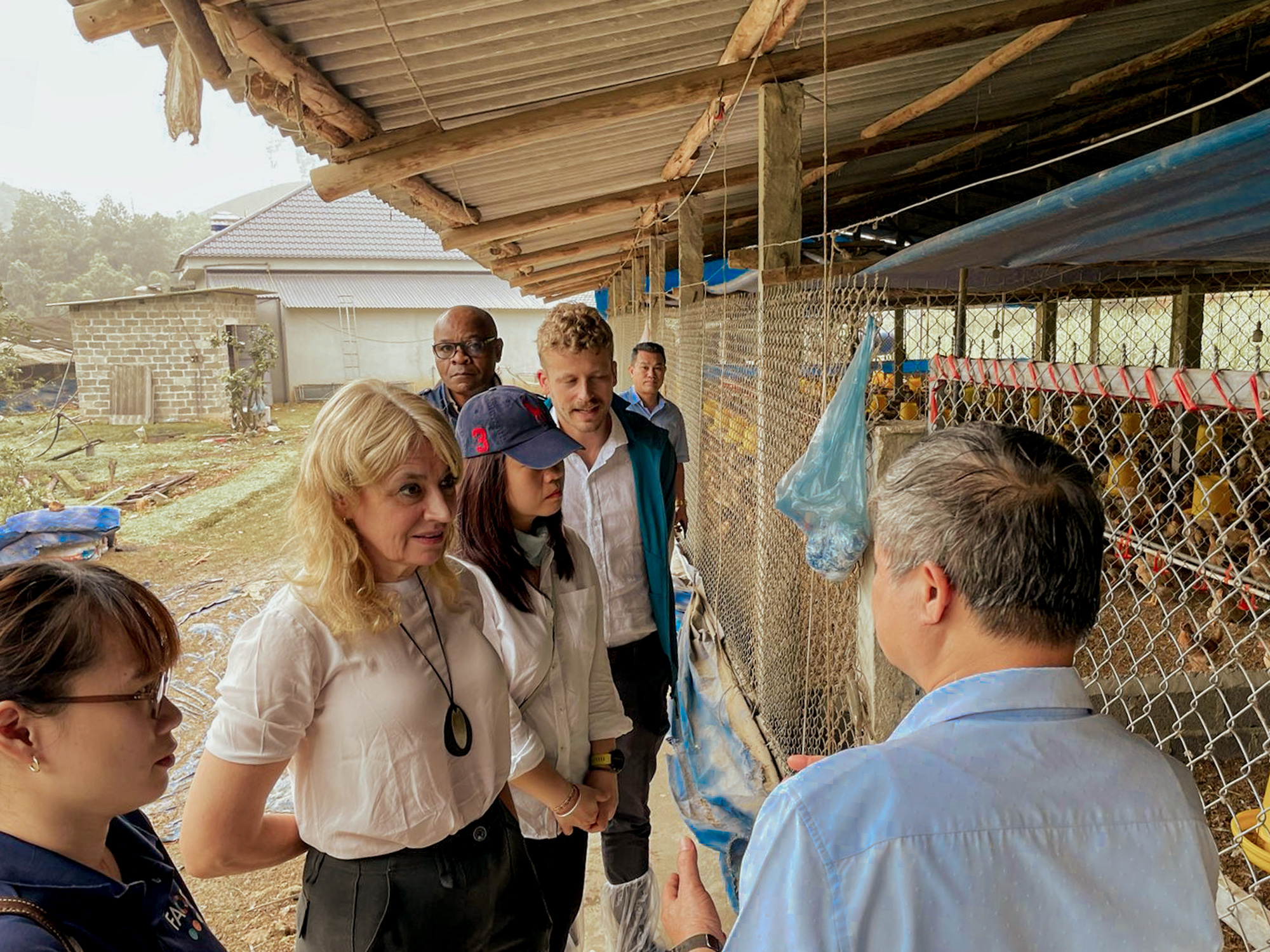FAO and UK unite to tackle antimicrobial resistance in Viet Nam

UK's Chief Veterinary Officer Christine Middlemiss (second from left) speaks to a Vietnamese official during the joint mission with the FAO and Viet Nam Department of Animal Health and Production in Thai Nguyen.
©FAO/Pawin Padungtod
Hanoi – FAO and the United Kingdom are strengthening their partnership with the Government of Viet Nam to tackle antimicrobial resistance (AMR) and promote responsible antimicrobial use in agriculture through the Farmer Field School (FFS) model in Thai Nguyen Province.
This collaboration is part of the FAO-Fleming Fund project on Engaging the food and agriculture sectors in Sub-Saharan Africa, and South and Southeast Asia, to generate data-for-action to combat AMR using a One Health approach. Funded by the UK’s Fleming Fund, the project supports countries in implementing national AMR action plans.
In Viet Nam, over USD 300 000 have been allocated to develop data-driven strategies and field-level interventions. A key component is the Farmer Field School model, which was launched in July 2024. This “school without walls” provides poultry farmers with practical knowledge on biosecurity, animal health and responsible antimicrobial use. The pilot model engaged 30 farmers across Dong Hy, Phu Luong and Phu Binh districts. Early results show significant reductions in antimicrobial use, alongside improved productivity and animal welfare.
Speaking during a joint mission visit to model farms in Dong Hy District, Professor Christine Middlemiss, the UK's Chief Veterinary Officer, said, “AMR is one of the most pressing global health threats. By working with FAO and our Vietnamese partners, we empower farmers with the tools they need to protect their animals and our shared future.”
Iain Frew, UK Ambassador to Viet Nam, added “this collaboration shows the power of strong partnerships in addressing global challenges like AMR. Supporting community-based solutions like the Farmer Field School not only reduces health risks but also strengthens livelihoods and promotes sustainable agricultural development.”.
The FFS model is being implemented in partnership with the Department of Animal Health and Production (DAHP) under Viet Nam’s Ministry of Agriculture and Environment, and the Thai Nguyen provincial authority. Discussions with local officials and participating farmers highlighted the model’s effectiveness and potential for nationwide replication.
Dr. Rémi Nono Womdim, FAO Representative in Viet Nam, praised the initiative and called for broader implementation. “The Farmer Field School approach has proven effective in fostering behavioral change at the grassroots level. Reduced antibiotic use, enhanced biosecurity and biosafety, and increased farmer incomes show how evidence-based education can transform agriculture. This model can be successfully replicated across other provinces in Viet Nam. We are very grateful to the UK’s generous contribution and proud to work with the Vietnamese Government and other key stakeholders to turn awareness of AMR risks into action.”
This initiative supports Viet Nam’s National Action Plan on AMR in agriculture and aligns with FAO’s global strategy to combat AMR through a One Health approach—recognizing the interconnected health of humans, animals and the environment.
Contact
British Embassy in Hanoi
Pham Thi Huyen My, Head of Strategic Communications
Mobile Phone: (+84 24) 3936 0597
FAO Viet Nam
Pawin Padungtod, Senior Technical Coordinator
Mobile Phone: (+84 945) 436 161
